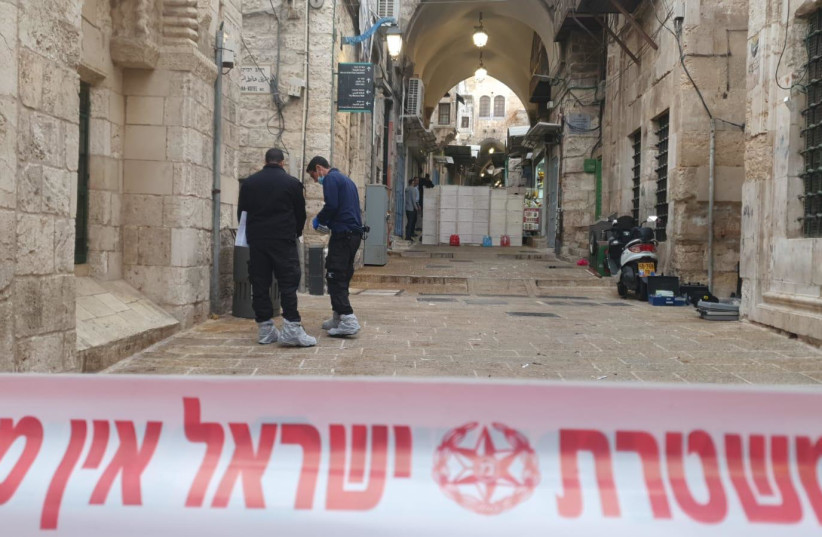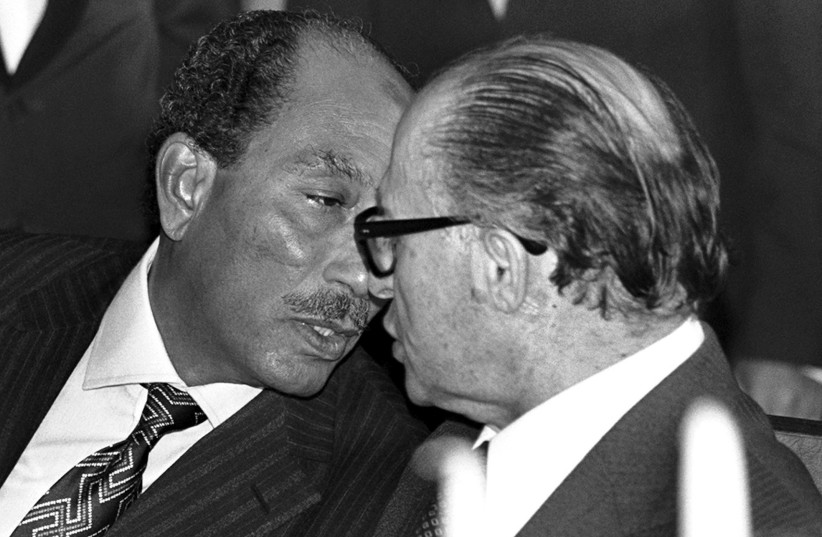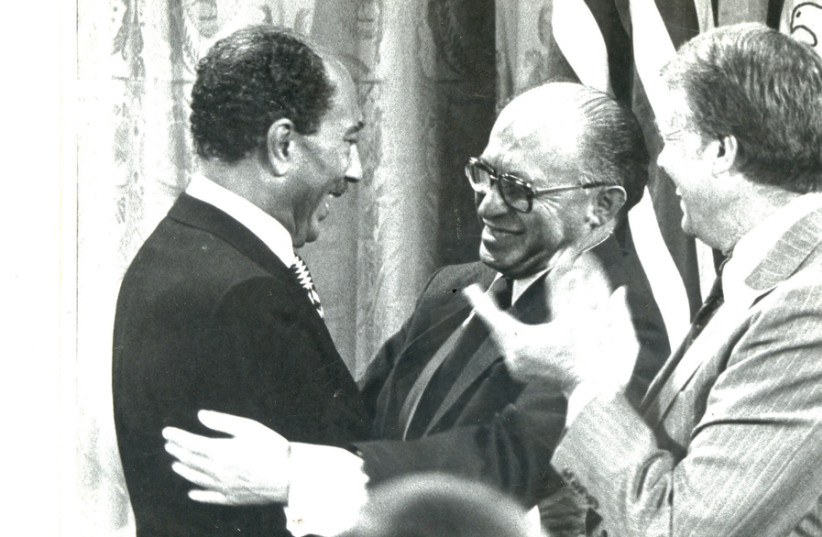 Who was the Islamic ‘scholar’ who carried out the Jerusalem attack?
Who was the Islamic ‘scholar’ who carried out the Jerusalem attack?
KHALED ABU TOAME
What is clear is that he was affiliated with Hamas and regularly expressed views similar to those of the Gaza-based group.

Those who knew Sheikh Fadi Abu Shkhaydam were not surprised to hear that he was the terrorist who carried out the shooting attack in the Old City of Jerusalem on Sunday morning.
Described by his friends and acquaintances as an “Islamic scholar,” the 42-year-old Abu Shkhaydam was a well-known mosque preacher in east Jerusalem mosques, including the al-Aqsa Mosque. Others referred to him as a “senior Hamas official in Jerusalem.”
It was not clear whether he held an official position with Hamas. What is clear is that he was affiliated with Hamas and regularly expressed views similar to those of the Gaza-based group.
Abu Shkhaydam was known for his daily presence at the al-Aqsa Mosque compound, where he used to deliver sermons and lead protests against tours by Jewish groups.
He was not, however, affiliated with the Jordanian-controlled Waqf Department, which administers the Islamic holy sites in Jerusalem.
In addition, he was known as a prominent and influential figure in Shu’fat Refugee Camp, where he helped solve disputes between local families and individuals.
Abu Shkhaydam, a father of five, was born in Shu’fat Refugee Camp, the only camp located within the boundaries of the Jerusalem Municipality. The camp is run by the United Nations Relief and Work Agency for Palestine Refugees (UNRWA), although it is located under Israeli sovereignty.
Most of the original residents of the camp, located between Jerusalem’s French Hill and Pisgat Ze’ev neighborhoods, came from the Old City of Jerusalem before the 1967 Six Day War.
The residents of the camp, including the Abu Shkhaydam family, hold Israeli-issued ID cards in their capacity as permanent residents of Jerusalem. Permanent residents of Israel are entitled to all the rights of an Israeli citizen, except for voting in the general elections.
They are nevertheless entitled to vote and present their candidacy in the municipal elections, but most Arab residents of Jerusalem have been boycotting the municipal elections since 1968 on the pretext that participation in the vote would be seen as recognition of Israel’s decision to annex east Jerusalem.
Abu Shkhaydam’s friends referred to him as a “mourabit” (garrison soldier or defender of a faith) because of his activities to prevent Jews from visiting the Temple Mount.
It is believed that more than 1000 men and women have been recruited by various Islamic groups to “defend” the al-Aqsa Mosque against alleged attempts by Israel to “change the status quo” by allocating prayer space for Jews at the Temple Mount.
In 2015, Israel outlawed the mourabitoun (plural for male mourabit) and mourabitat (plural for female mourabita).
Despite the ban, dozens of men and women, including Abu Shkhaydam, continued to arrive at the Temple Mount almost every day to harass and shout at Jews who enter the area under police protection.
“Sheikh Fadi was a permanent mourabit at the al-Aqsa Mosque,” said his uncle, Shibli Sweiti. “He studied sharia (Islamic religious law) and was working on his PhD. He was an educator at the mosque and taught sharia in some of Jerusalem’s schools.”
Abu Shkhaydam worked as a teacher of Islamic Education at al-Rashidiya Secondary School across the street from Herod’s Gate. The school operates under the supervision of the Jerusalem Municipality.
In videos that surfaced on social media platforms after the terrorist attack, Abu Shkhaydam is seen chanting slogans at the al-Aqsa Mosque compound in which he pledges to defend the site from any “aggression.” In other videos, he is seen praising Palestinian prisoners held in Israeli prisons and urging Muslims to fight against their “oppressors.”
In a recent sermon during Friday prayers, Abu Shkhaydam lashed out at the Arab countries and heads of state, dubbing them “prostitutes” because of their alleged “collusion” with Israel and “betrayal” of the Palestinians.
Zawartość publikowanych artykułów i materiałów nie reprezentuje poglądów ani opinii Reunion’68,
ani też webmastera Blogu Reunion’68, chyba ze jest to wyraźnie zaznaczone.
Twoje uwagi, linki, własne artykuły lub wiadomości prześlij na adres:
webmaster@reunion68.com






